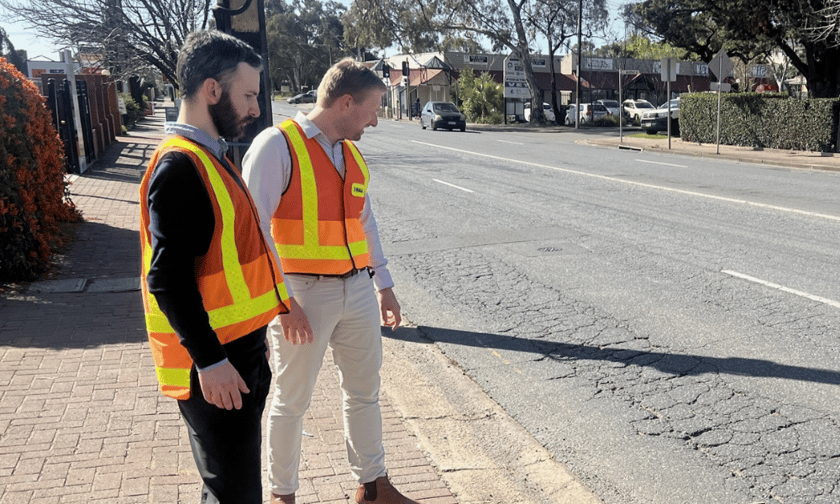

Road maintenance issues have topped the list of concerns for South Australian drivers, according to recent data from the Royal Automobile Association of South Australia (RAA).
The information, gathered through the RAA’s Report a Road platform, identified the most frequent complaints submitted by motorists across the state.
The Report a Road platform, which allows South Australian road users to report infrastructure problems at any time, received nearly 600 submissions over the past two financial years.
The primary concerns reported were:
The data revealed that road surface complaints were more common in regional areas, accounting for 51% of these submissions, compared to 37% from metropolitan regions.
On a national scale, new data from mycar Tyre & Auto, an automotive services provider, revealed that the cost-of-living crisis is a major concern for Australian drivers. It found that 60% of Australians have downgraded their car maintenance routines due to financial pressures.
Advocating on behalf of its 800,000 members, the RAA has been pushing for increased funding to address what it describes as a $2 billion road maintenance backlog in South Australia.
This effort aligns with the RAA’s broader road safety strategy – which emphasises the importance of safer roads, vehicles, speeds, and drivers – as road trauma remains prevalent in South Australia.
In July, the motoring group reviewed crash statistics on South Australian roads. It found 44 fatalities and 434 serious injuries on the state’s roads in the first half of 2024, reflecting a difficult path towards achieving the state’s road safety targets.
RAA senior manager for safety and infrastructure Charles Mountain highlighted the importance of addressing road maintenance, particularly in regional areas.
“The condition of some of our roads is concerning – especially in our regional network – and this is reflected in the feedback we’re receiving from our members year round via Report a Road,” he said. “That’s why we’ve been calling for $1 billion over four years to address this issue in our recent state budget submissions.”
The RAA’s traffic engineering team reviews every submission, conducting detailed site investigations when necessary, and recommends improvements to the relevant authorities.
Over the last two financial years, 64 of these nominations led to actions, such as:
Mountain said the Report a Road platform enables South Australians to highlight road-related issues. The motoring group then works closely with the responsible authorities to address the issues brought up on the platform.
The majority of the reports came from metropolitan Adelaide, with the southern suburbs accounting for 22% of the total, followed by Northern Adelaide (18%), the western suburbs (16%), and Eastern Adelaide including the CBD (11%).
Residents can view reported issues and track the status of investigations on the online Report a Road map or submit new concerns via the platform.
Separately, the South Australian government has introduced a proposed reform package for the driver training industry, following extended lobbying by the RAA.
RAA general manager of community and corporate affairs Emily Perry welcomed the announcement, noting that the motoring group would carefully evaluate the implications of the proposed changes.
“While we’re encouraged the government has finally released their intended reforms – we’ll be looking closely at the proposal to ensure all measures are in the best interests of leaner drivers, road safety, and address the challenges faced by the industry,” she said.
The proposed reforms include several key changes, such as a new format for Competency Based Training Assessment, requiring learner drivers to pass a practical driving test with a government examiner to obtain their provisional license.
Additionally, driving instructors will be required to meet new standards, including demonstrating good character, providing medical fitness evidence, and passing enhanced practical and theoretical assessments to enter and remain in the profession.
Other reforms include the introduction of a formalised Code of Practice with penalties for breaches, mandatory installation of cameras and GPS devices in all driver training vehicles, and new transparency requirements for instructors concerning payments, fees, and services.
